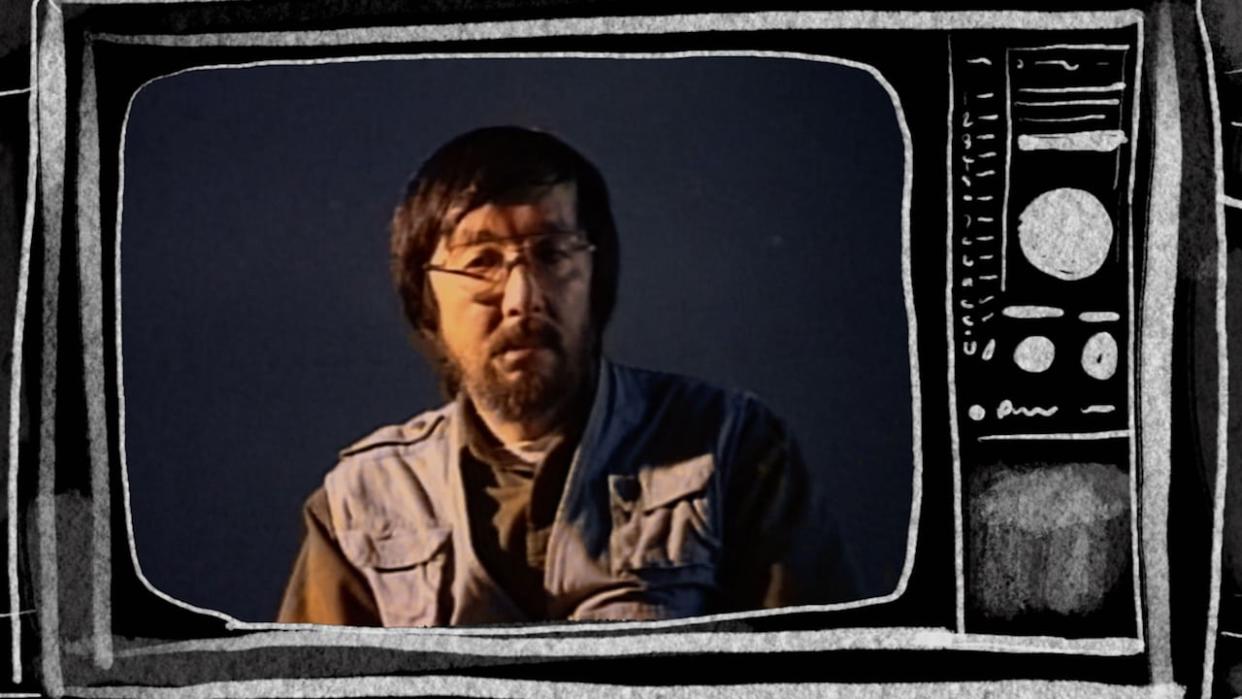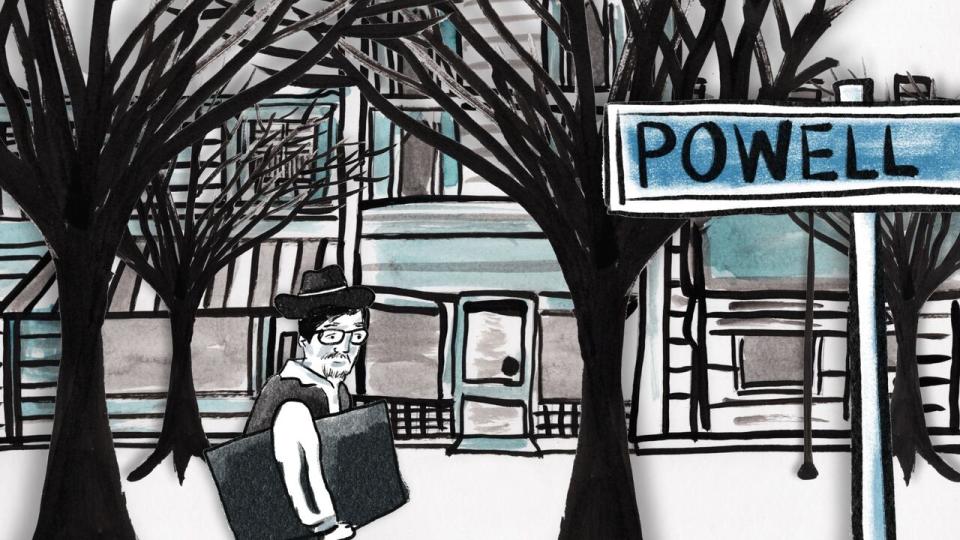Documentary tells little-known story of Japanese-Canadian civil rights photographer

A new documentary looking at the life of Japanese-Canadian photographer and civil rights activist Tamio Wakayama describes him as a "key figure in Japanese Canadian history, whose story is not well known."
Between Pictures: The Lens of Tamio Wakayama is directed by Vancouver-based artist Cindy Mochizuki and uses archival footage, interviews, animations, and Wakayama's unpublished memoir to tell his story.
Wakayama, who died in 2018 at the age of 77, documented scenes from the American civil rights movement in the deep south in the 1960s and later spent years documenting the Japanese community in Vancouver.
"He has this incredible body of work on both sides of the border," said Mochizuki. "I thought it was important and necessary to bring that story to light."
Wakayama was born in Vancouver months before the bombing of Pearl Harbour in 1941.

Wakayama is pictured walking down Powell Street in Vancouver, carrying a portfolio bag in this animation from the film. (Submitted by Cindy Mochizuki)
His family spent years at the Tashme internment camp near Hope, B.C., before being relocated to southwestern Ontario. They were stripped of their land, house, business, and car.
While in college in 1963, Wakayama took a trip to the U.S. and found himself jumping into action to join the civil rights group Student Nonviolent Coordinating Committee (SNCC), first as a custodian, and eventually becoming a photographer.
According to the SNCC's records, he made several trips to Mississippi to document the Freedom Summer of 1964, a volunteer initiative aimed at increasing the number of Black voters in the state.
Mochizuki said Wakayama was interested in the lives of the people he photographed, and that interest shone through the images he took.
"He has a way of capturing people's faces," said Mochizuki. "Even if there's this struggle, there's this sense of joy. There's this sense of resilience and power and hope in the faces."
After his summer with the SNCC, Wakayama returned to Canada, eventually returning to his birthplace on the West Coast — where he spent years documenting Vancouver's Japanese-Canadian community.
He was a key photographer for the Powell Street Festival Society, an organization dedicated to preserving the history and culture of Japanese Canadians.
"He captured the heart of our annual gathering — its diversity and energy of celebration and empowerment," says a statement posted by the group at the time of Wakayama's death, noting his photographs are archived at the Nikkei Museum.
Mochizuki said it takes a particular kind of photographer to be able to have such proximity to people as Wakayama did.
"His role is documenting the people … and I think that's an important task inside a community with such a fraught history," she said.
The documentary is showing Sunday at The Cinematheque as part of Vancouver's Documentary Film Festival.


